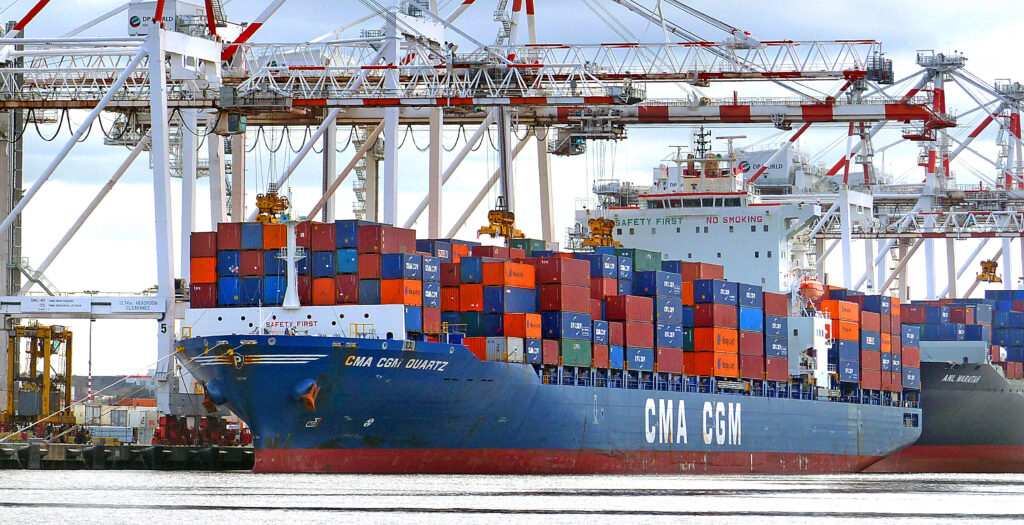
Having proper international shipping documentation is critical for U.S. freight moving outbound internationally as exports. Navigating U.S. and international trade laws is already a complex process, further complicated by evolving global trade standards and regulatory environments. Correct paperwork ensures smooth transit, reduces risk, strengthens customer trust and creates a reliable chain of custody.
Customs brokers and freight forwarders, as licensed intermediaries, are required to file certain international export shipping documentation. 3PLs and other logistics providers such as warehousing and trucking companies assist in the process. As transportation intermediaries, these types of logistics providers support documentation but cannot typically process all the required export documents independently because some responsibilities are legally tied to the shipper as the Exporter of Record and/or licensed intermediaries: customs brokers and international freight forwarders.
Without a freight forwarder or broker, risk increases: a missing filing or license can stop the shipment at port, cause fines, or even block entry into the destination country. Keeping detailed records protects the shipper from liability, supporting proof of due diligence in audits or investigations.
But ultimately, responsibility for ensuring paperwork is correct lies with the shipper and all their logistics providers—not just forwarders and customs brokers. Even for mistakes made by their shipper customers, governments are increasingly holding logistics providers accountable when their services contribute to export violations.
There’s a lot at risk for non-compliance. Regulations like the Export Administration Regulations (EAR) and International Traffic in Arms Regulations (ITAR) apply to all parties in the export chain, and errors can trigger delays, fines or shipment seizures, among other penalties. Customs agencies rely on accurate filings for security screening and compliance with sanctions.
Essential international shipping documents
While every shipment is different, no international cargo can move without essential documents. Here are the essential documents required:
Invoice
Packing List
Bill of Lading (BOL, or air waybill)
Accurate, detailed invoices are provided by the shipper and required before shipment. There are also two types of invoices. The commercial invoice is required for customs clearance and payment processing after goods are delivered. A pro forma invoice equates to an estimate or preliminary quotation. While a pro forma invoice is not legally binding on its own, it can be provisionally accepted by U.S. customs under specific conditions, and it is a critical document for certain types of shipments in Europe and South America.
Additional documentation
There are a number of other specialized documents you may need, depending on the specific requirements of the international outbound shipment such as product type, shipment value and destination country regulations, among other factors. These documents include but aren’t limited to the following:
Certificate of Origin
Export/Import Licenses
Letter of Authorization (AES filing)
Shipper’s Letter of Instruction
Dangerous Goods Declaration
Insurance Certificate
Inspection Certificate
The Automated Export System (AES) is the U.S. government’s digital platform for filing Electronic Export Information (EEI) to ensure compliance with export laws. These filings are required for shipments valued over $2,500 per item, or when an export license or specific regulatory requirement applies. While the forwarder, customs broker, or other agent can submit the filing, legal responsibility remains with the shipper to make sure it’s done correctly and on time.
Documentation best practices
Here’s a few best practices for ensuring accuracy and consistency of documentation:
One of the most effective ways to avoid errors is by using checklists tailored to each destination and shipment type, ensuring that every required form is prepared. Verify consistency across documents such as invoices, packing lists and BOLs. Providing correct information from the start—including accurate values, Harmonized System (HS) codes, and product composition—prevents compliance issues and establishes trust with customs authorities. Shippers as exporters are legally responsible for declaring the correct HS codes. Licensed customs brokers and licensed forwarders are often relied upon to interpret regulations and guide shippers on HS codes.
Logistics platforms and freight forwarding systems make it possible to automate forms, store electronic copies and use standardized templates that reduce errors. Since customs regulations and trade agreements frequently change, it’s essential to work with trusted logistics partners who proactively provide guidance. Carefully reviewing draft documents before submission and, when possible, confirming details with the importer, adds another safeguard against mistakes.
The bottom line
All logistics providers need to show diligence when handling freight bound for international transit. 3PLs, warehousing and trucking providers play a vital supporting role in export compliance but are not the final compliance gatekeepers.
Worley Warehousing, a Midwest-based warehousing and logistics provider, brings shippers a proven success record in compliant shipping and documentation processes for international export shipments.